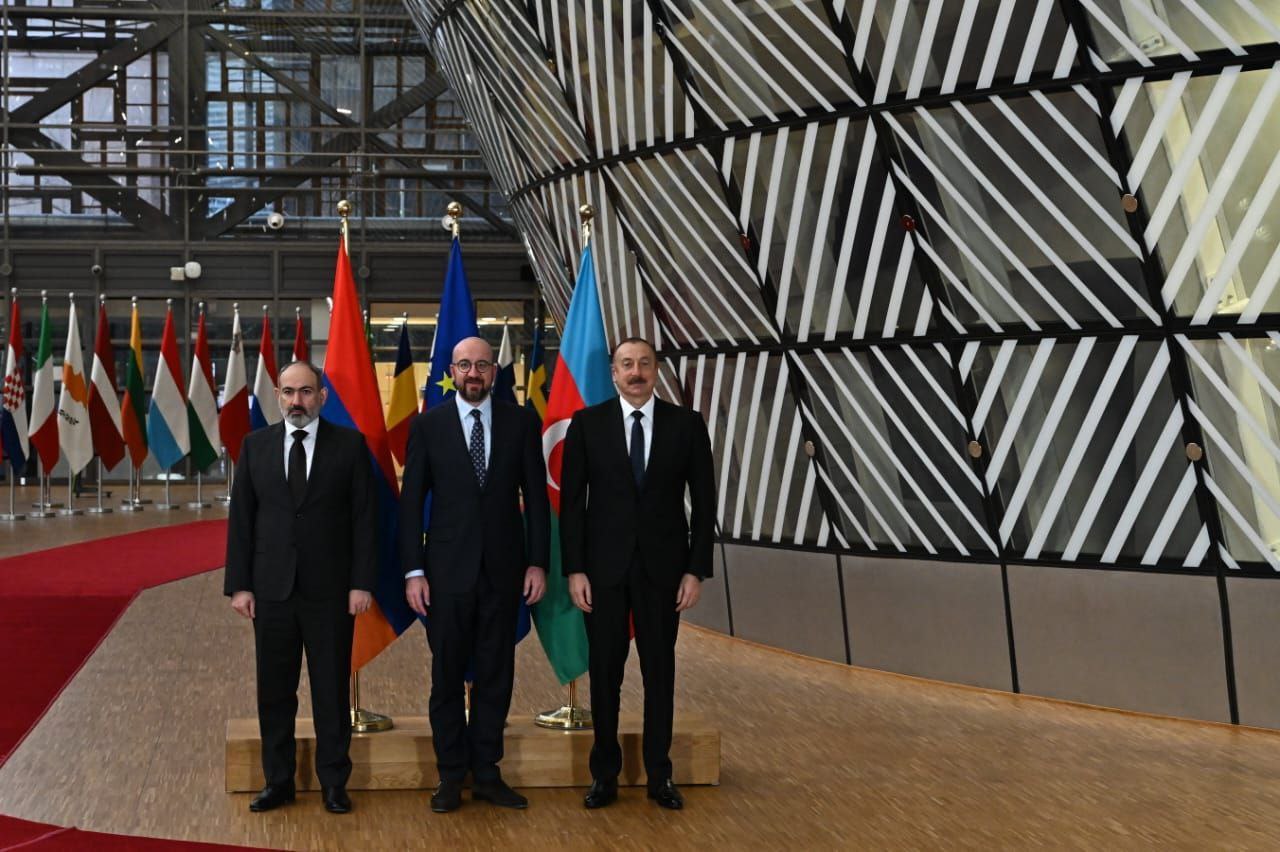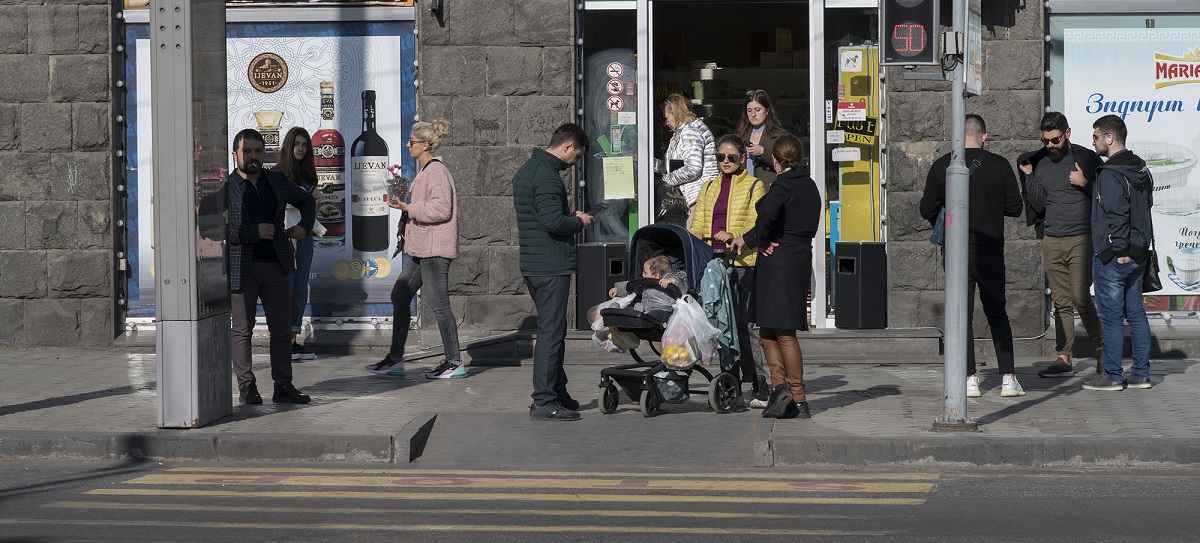PM Pashinyan, President Putin meet amid war in Ukraine and tensions in Armenia
Pashinyan-Putin talks in Novo-Ogaryovo
The official visit of the Prime Minister of Armenia to Moscow took place amid internal political tensions and an extraordinary situation both at the borders of Armenia and at the line of contact in Nagorno-Karabakh. At the same time, Armenian experts expected the talks to result not in a solution to problems but in additional pressure on Armenia in connection with the ongoing war in Ukraine.
The visit was timed to coincide with the 30th anniversary of the establishment of diplomatic relations between Armenia and Russia.
Following the talks between Pashinyan and Putin, a 30-point joint statement on strengthening allied relations and implementing previously reached agreements was signed.
“The parties stressed the need for the prompt solution of urgent humanitarian tasks and the Nagorno-Karabakh settlement by political and diplomatic means. In this context, we noted the importance of using the potential and experience of the OSCE Minsk Group Co-Chairmanship Institute in accordance with its international mandate”, paragraph 24 of the statement reads.
- Armenian PM Pashinyan faces fresh calls to quit days before his talks with Russian president
- “Armenia can repeat the success of Singapore” – Russian entrepreneurs continue to flock to Yerevan
- Op-ed: “Role of mediators decreases as Yerevan, Baku enter direct dialogue”
Before the start of the Pashinyan-Putin meeting, the Kremlin spokesman Dmitry Peskov said that during the two-day visit a whole package of documents would be signed, “very intensive contacts at the level of the Russian government” were planned. The Armenian delegation includes Deputy Prime Minister Mher Grigoryan, Foreign Minister Ararat Mirzoyan, Minister of Education, Science, Culture and Sports Vahram Doumanyan.
It was also announced in advance that Pashinyan and Putin would discuss ways to further develop the Armenian-Russian strategic and allied relations. The agenda of the talks includes the implementation of tripartite statements by the leaders of Armenia, Russia and Azerbaijan. This refers to a document as a result of which hostilities in Karabakh ended in the fall of 2020, and two others, which were also signed with the mediation of Moscow to implement the provisions of the first one.
Both Pashinyan and Putin spoke about problems in Nagorno-Karabakh
The Armenian Prime Minister said that Russia played a key role in ensuring security in the South Caucasus, and once again stressed Putin’s role in ending hostilities in NK. He also spoke about the importance of the Russian peacekeeping mission stationed in Nagorno-Karabakh.
At the same time, Pashinyan noted that the activities of peacekeepers needed to become more effective. The main political issue in the region, according to him, is the settlement of the Nagorno-Karabakh conflict, which he intends to discuss with the Russian president.
Putin agreed that many problems remain unresolved in connection with Nagorno-Karabakh:
“Of course, the focus of our attention will be security issues, including those related to Karabakh. We are constantly in contact with you – if not every week, then every ten days we talk on the phone, and meetings are regular”.
The President of Russia specified that 200 documents have been signed between Armenia and Russia in previous years, which makes it possible to work in all areas:
“In 2021, our growth was 12.8%, according to our statistics. And for the first months of this year – by another 50%. This is a very good indicator, especially in modern times”.
Other possible negotiation topics
Azerbaijan’s advance into the territory of Armenia
In May last year, the Azerbaijani Armed Forces invaded the sovereign territory of Armenia and still refuse to retreat to their original positions. Armenia has repeatedly turned to its strategic ally, Russia, for help on this issue, but has not received a clear answer. This also applies to the CSTO military bloc, which includes Armenia and which operates under the auspices of Russia. In Armenia, both society and experts expect discussion and some progress on this issue.
Problems in the zone of responsibility of peacekeepers in NK
In March, the Azerbaijani Armed Forces captured the territories in Nagorno-Karabakh, which are under the responsibility of the Russian peacekeeping contingent. The Armenian side unsuccessfully demands the return of Azerbaijani units to their original positions. The Prime Minister of Armenia has already stated during a telephone conversation with Putin about the need to “investigate the actions or inaction of the peacekeepers”. This issue was also discussed at the meeting of the Foreign Ministers of Armenia and Russia. Sergey Lavrov said that the situation was not completely clear and was being investigated.
West-Russia rivalry?
Visits of the OSCE Minsk Group Co-Chairs to Yerevan
On the eve of Pashinyan’s visit to Moscow, the co-chairs of the OSCE Minsk Group arrived in Yerevan one after another – first from France, then from the United States. Both declared their readiness to support peace talks with Azerbaijan, including in the format of co-chairmanship.
The OSCE Minsk Group was established in 1992. This is a group of OSCE member states that carried out a mediating role in the negotiations on the Karabakh conflict until the start of the 2020 war. The Minsk Group includes Germany, Italy, Finland, Sweden, Belarus, Turkey, Armenia and Azerbaijan. Russia, the USA and France are the group’s co-chairs.
Armenia continues to insist on continuing negotiations on the Karabakh conflict and even on a peace agreement with Azerbaijan in the format of the OSCE Minsk Group, despite its long inactivity. Azerbaijani authorities believe that the group has not fulfilled the mission assigned to it, and the Karabakh conflict has already been resolved by military means, therefore, there is no need for its mediation.
The activation of the Minsk Group is connected with the statement of the Russian Foreign Minister who said that the other two co-chairs of this format, that is, the United States and France, did not intend to communicate with Russia within the group’s framework anymore. Sergey Lavrov stated this on April 8, when the Minister of Foreign Affairs of Armenia was in Moscow on a working visit.
- Armenian and Russian FMs meet in Moscow immediately after Pashinyan-Aliyev talks in Brussels
- Future of Karabakh mediators: no more OSCE Minsk group?
Growing interest of Western partners
After the start of the Russian-Ukrainian war, Western countries began to show more interest in the region and the Armenian-Azerbaijani problems. On April 6, the second meeting between the Prime Minister of Armenia and the President of Azerbaijan took place in Brussels through the mediation of the head of the European Council, Charles Michel.
On the evening of April 18, before Pashinyan left for Moscow, the Prime Minister of Armenia had a telephone conversation with Charles Michel.
It is reported that the process of implementation of the agreements reached in Brussels, the situation in the region and issues on the Armenia-EU bilateral agenda were discussed. In particular, they discussed the implementation of an agreement on the allocation of 2.6 billion euros to Armenia within the framework of the economic and investment plan of the EU’s Eastern Partnership. The head of the European Council stressed the need to start the stage of practical implementation of the projects included in it.
Domestic political problems
Opposition took to the streets calling for a change of power
While the Pashinyan-Putin negotiations were going on, a march of the opposition took place in Yerevan, during which it once again openly announced the start of the struggle for a change of power.
Two former presidents, who have always been distinguished by their pro-Russian orientation, intend to return to power again – Robert Kocharyan and Serzh Sargsyan. Both lead the two main opposition forces in Armenia, which are represented in parliament.
One of them, the “I Have the Honor” faction, has been taking to the streets since the end of last week. Its leader, Artur Vanetsyan, is holding a sit-in strike in the center of Yerevan for the third day, inviting everyone who agrees with the demand for the resignation of the current government to join. It is noteworthy that Vanetsyan began his action after a trip to Moscow, although he himself denies the connection between these events. The “I Have the Honor” bloc also includes the party of former President Serzh Sargsyan.
Another opposition faction, associated with ex-president Robert Kocharyan, did not join the action of the leader of the “I Have the Honor” faction, declaring that it had its own plan of action, which would inevitably lead to a change of government.
Expert commentary
Even before official information about the results of the meeting came out, political scientist Robert Ghevondyan told JAMnews that Pashinyan and Putin would definitely talk about the meeting in Brussels and address the issues of the previously announced agenda: unblocking of the regional communications, border demarcation and signing of a peace treaty.
The political scientist does not consider accidental the Michel-Pashinyan telephone conversation before the Moscow meeting, during which the assistance to Armenia in the amount of $2.6 billion was mentioned:
“We can conclude that quite complex discussions are expected in Moscow, which, I think, will not lead to serious, final decisions. I don’t think we should expect a specific plan of action”.
According to Ghevondyan, Armenia has little room for diplomatic maneuvers, so it is necessary to be flexible in negotiations:
“So far Armenia succeeds in doing this․ We see that the delimitation commission [should be created by the end of April, according to the agreements reached in Brussels] is in the process of being formed, a peace treaty has not yet been drawn up. And although the prime minister has spoken of ‘lowering the bar’, concrete processes have not yet taken place. But if the bar is really lowered, it will be a defeat for our diplomacy”.
Speaking about the mediation missions of the European Union and Russia, the political scientist notes that sometimes they are combined, and sometimes they are opposed:
“The mediators are trying to increase the degree of their intervention in the process in order to win more in the end, to promote their interests more in the relations that are being formed between Armenia and Azerbaijan”.
In Armenia, many fear Moscow’s pressure on the issue of joining the Union State. Meanwhile, the expert believes that such an issue is not on the agenda of Moscow, since “the fate of this state is being decided in Ukraine”.
According to Ghevondyan, Armenia is now playing the role of a loophole between Russia and the West. Therefore, “demands to renounce the West” also cannot be on the agenda of the Moscow meeting:
“In a situation where Russia is completely isolated due to sanctions, Armenia is a small loophole that allows contact with the West, both economically and to some extent politically, for example, in talking about the OSCE Minsk Group. It is unlikely that Russia will close it with its own hands”.




















